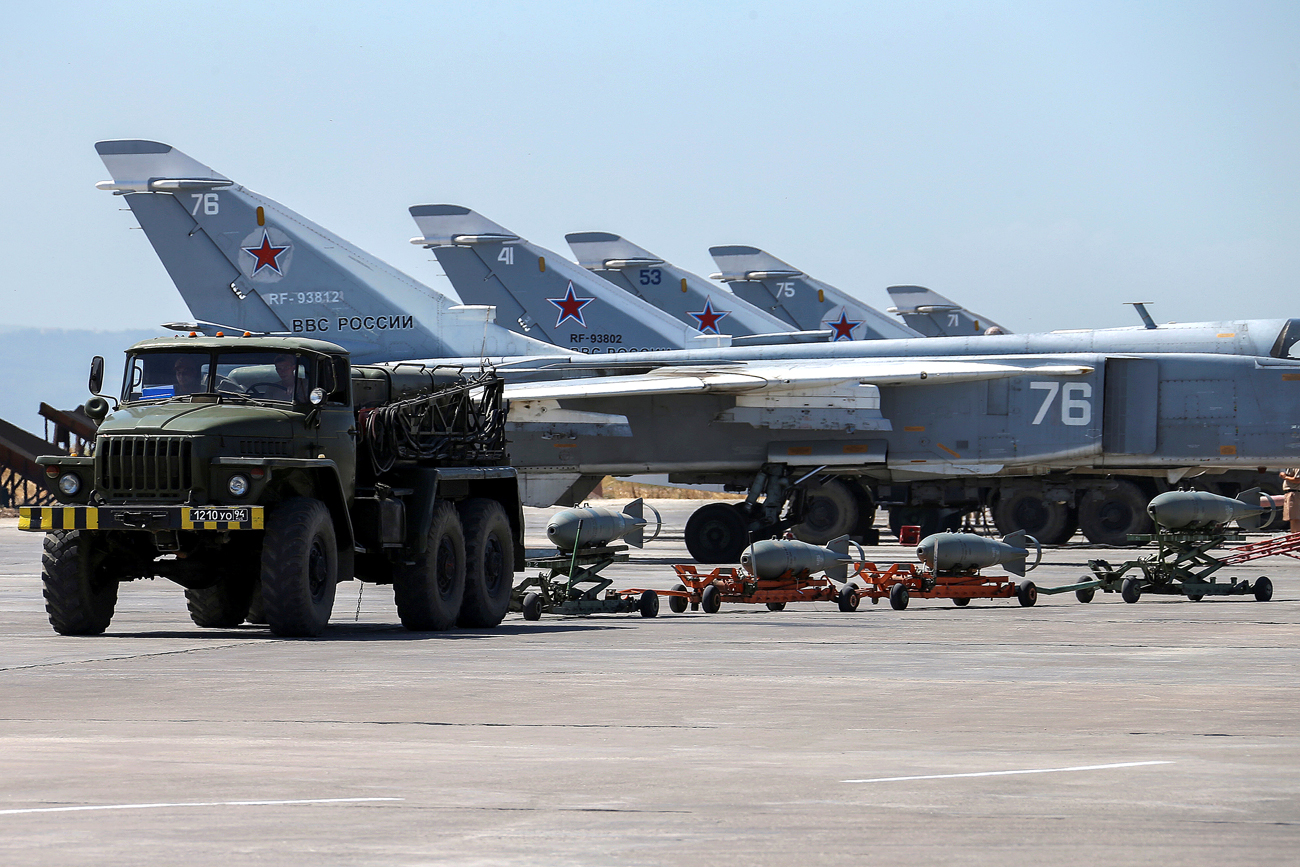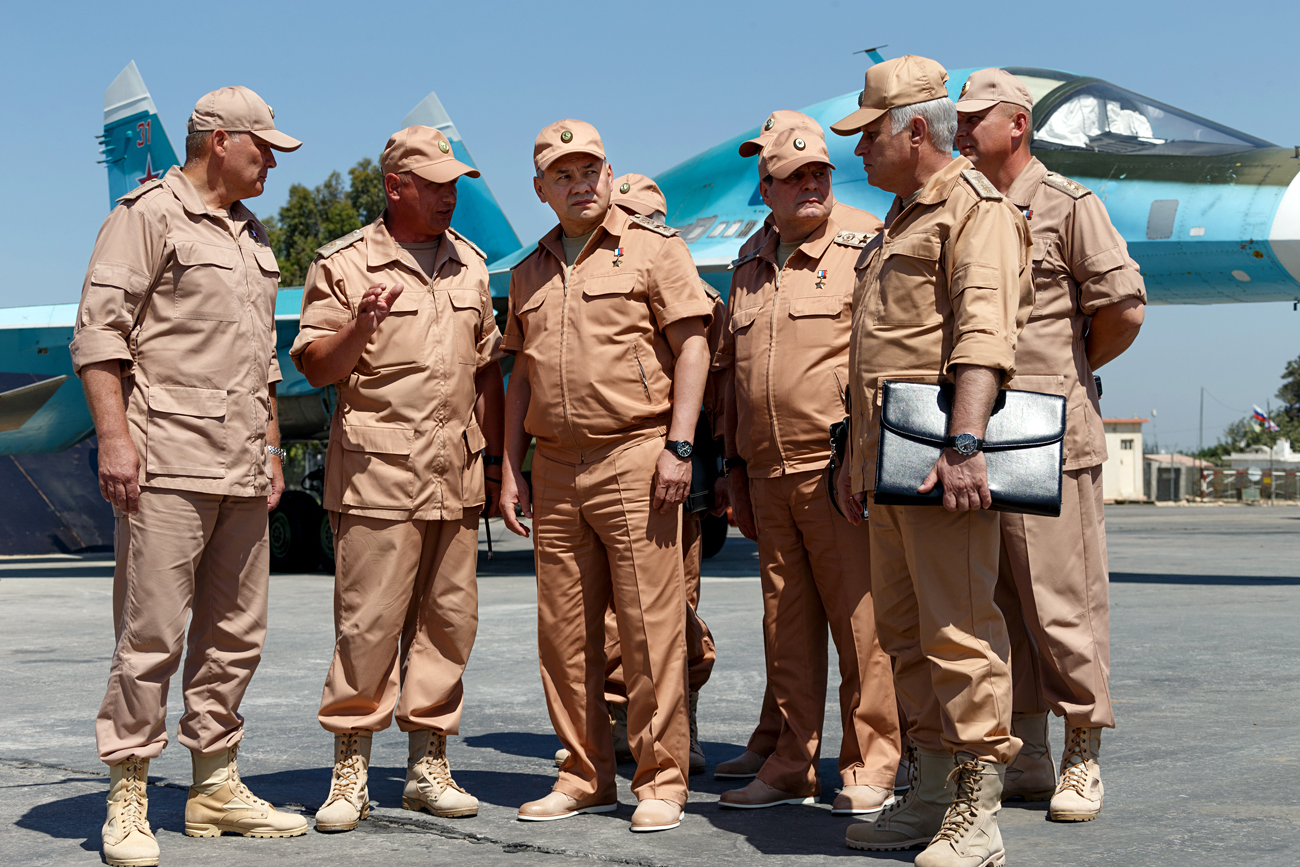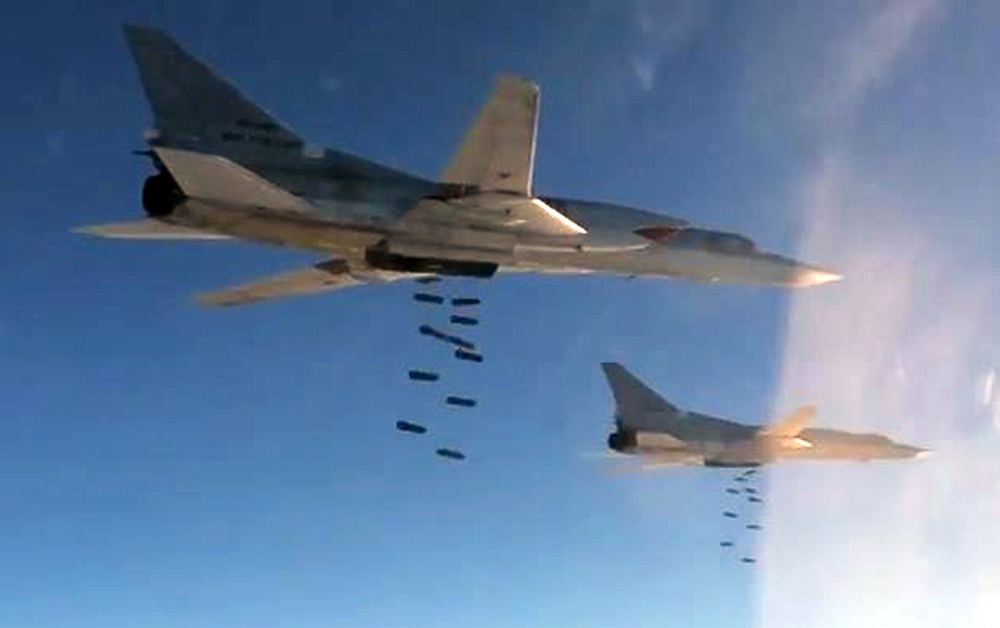Did Russia attack a U.S.-British base in Syria, and if so, why?

Russian military jets are seen at Khmeymim air base in Syria.
ReutersOn July 21, The Wall Street Journal reported an air strike by the Russian Aerospace Forces on a U.S.-British base in Syria on June 16.
According to the report, the attack in al-Tanf in the southeast of Syria targeted the secret base, which was used both by Syrian rebels and American and British special forces present in Syria as part of the Western coalition against Islamic State (ISIS).
The WSJ's sources believe that the attack on the U.S.-British base was planned by Russia in advance. The Russian Defense Ministry denied the allegations, saying through a spokesman that the military of the international coalition were in the zone of action of the Russian Aerospace Forces due to the fault of their leadership, which refuses to coordinate operations in Syria with Moscow.
Accident or planned action?
TASS military expert Viktor Litovkin believes that the air strike in al-Tanf was aimed at terrorists.
"The Russian Ministry of Defense did not know that the base was being used by the Americans and the British," Litovkin told RBTH. "Representatives of terrorist organizations, such as Jabhat al-Nusra were at this base."
However, Leonid Isayev, an expert in Arabic studies and a senior lecturer of the Department of Political Sciences at the Higher School of Economics in Moscow, believes that the newspaper’s story is credible: By attacking the base, Russia sent the United States and its allies a signal that lack of coordination can be very dangerous, and this had an effect.
"The negotiations that took place between Lavrov and Kerry recently [after the attack on the base] were focused precisely on the necessity of Russian-American coordination in Syria," said Isayev.
Direct confrontation unlikely
A Russian strike on a U.S.-British base looks menacing, but the reaction to the attack was restrained. Representatives of the U.S. and British authorities did not comment on the incident, except for the Pentagon's June 18 report, according to which the U.S. and Russian militaries discussed in detail the situation and made it clear they will do anything to avoid a repeat of such incidents in the future.
"U.S. and British troops did not suffer in the attack," said Litovkin. "This is what the restrained response from officials is connected with."
Isayev, meanwhile, is confident that the attack targeted the opposition fighters, rather than the representatives of the Western coalition, and Russia would not attack the United States and its allied forces in Syria.
"Both Russia and the United States understand that a direct confrontation can lead to a serious conflict which neither side needs."
Coordination difficulties
Russia has already urged the United States to work more closely with it in Syria, coordinating a single list of terrorist groups and sharing coordinates of the opposition fighters loyal to the Western coalition in order to spare them from possible strikes by the Russian air force. However, such an option will not be realized in the near future, according to Isayev and Litovkin.
"The United States has difficulty in forming a single list of moderate opposition forces that should not be touched and which should be negotiated with," Isayev said. "The problem is that the opposition is very blurred."
Many opposition groups, he pointed out, have split into smaller factions and come under different flags, declaring themselves alternately secular and Islamic, and cooperating with such groups as Jabhat al-Nusra, which has been labeled a terrorist group by both Russia and the United States.
Litovkin points out that coordination is hindered by disputes between the U.S. Department of State and the U.S. Department of Defense, which have different points of view on cooperation with Russia in Syria.
"When Sergei Lavrov negotiates something with Secretary of State John Kerry, then it turns out that this is not an agreement for the Pentagon and the leadership of the U.S. forces in Syria," he said.
Subscribe to get the hand picked best stories every week
All rights reserved by Rossiyskaya Gazeta.
Subscribe
to our newsletter!
Get the week's best stories straight to your inbox

